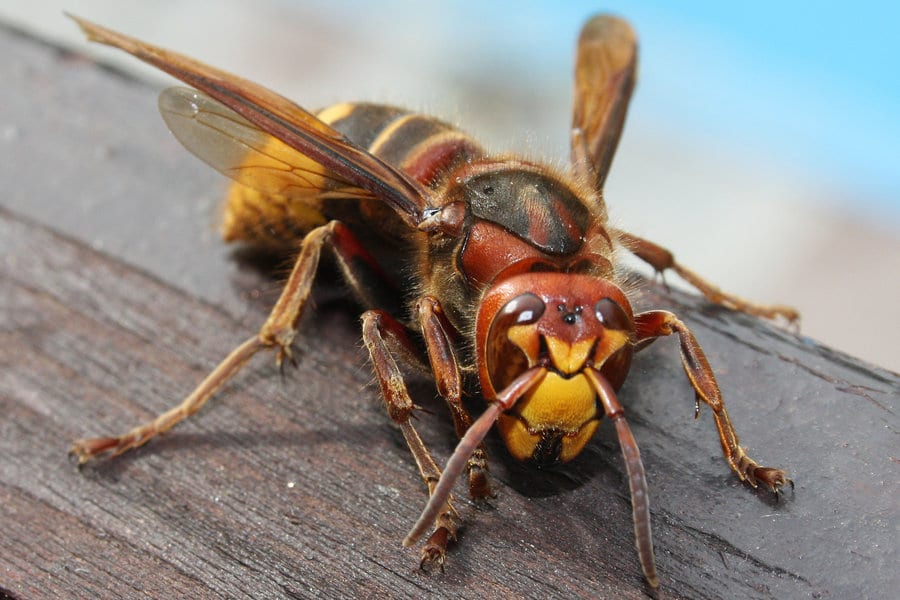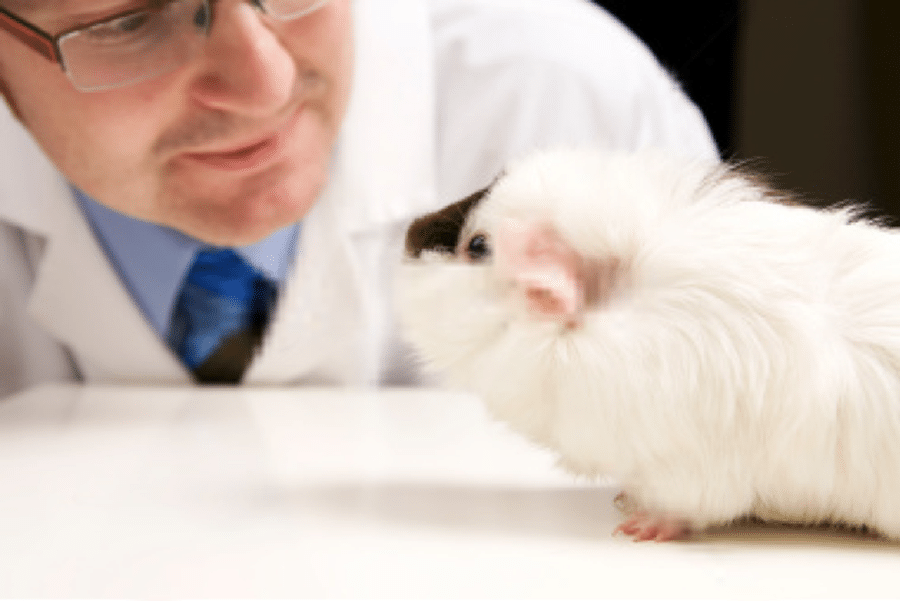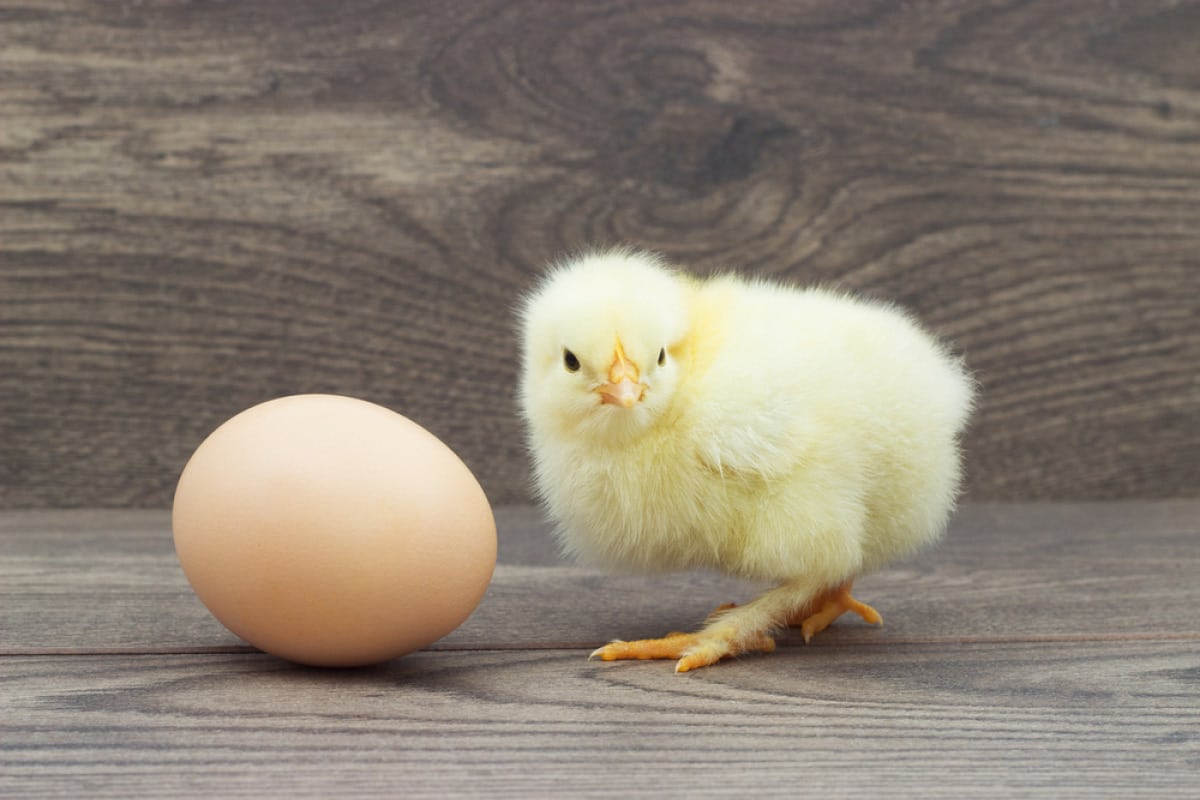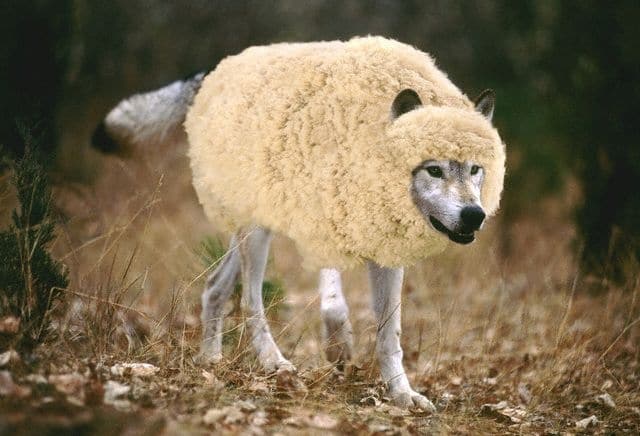
34 Common Animal Idioms in English and What They Mean (With Examples)
Your friend says, “You can’t teach an old dog new tricks,” and you wonder what he’s talking about. You’ve just heard an animal idiom. One of many.
Idioms are a type of figurative expression—where the meaning has no relation to the words in the phrase. They use creative descriptions to share an idea or feeling. The only way to learn them is to hear them and have the meaning explained to you.
So here are 34 animal idioms to improve your English skills even further!
Contents
- Common English Animal Idioms
-
- 1. At a snail’s pace
- 2. Busy as a bee
- 3. Open a can of worms
- 4. Wild goose chase
- 5. The world is your oyster
- 6. Watching like a hawk
- 7. Mad as a hornet
- 8. Dog eat dog
- 9. Eagle eyes
- 10. Get your ducks in a row
- 11. Guinea pig
- 12. Hold your horses
- 13. I’ll be a monkey’s uncle
- 14. Let sleeping dogs lie
- 15. Pet peeve
- 16. Pick of the litter
- 17. Puppy love
- 18. Like shooting fish in a barrel
- 19. A little bird told me
- 20. Bull in a china shop
- 21. Butterflies in one’s stomach
- 22. All bark and no bite
- 23. Which came first, the chicken or the egg?
- 24. Wolf in sheep’s clothing
- 25. You can’t teach an old dog new tricks
- More Animals Idioms in English
- Why Do We Use Idioms in English?
- Why You Should Learn English Idioms and How to Use Them
- And One More Thing...
Download: This blog post is available as a convenient and portable PDF that you can take anywhere. Click here to get a copy. (Download)
Common English Animal Idioms
1. At a snail’s pace
Meaning: Moving very slowly
This idiom is pretty self-explanatory because we know that snails and slugs move very slowly.
This idiom has been used for a very long time. The phrase is found in William Shakespeare’s play “Richard III,” which was written and first performed in 16th century England.
Example: Traffic is moving at a snail’s pace.
2. Busy as a bee
Meaning: Extremely busy
This idiom originated from Chaucer’s “Canterbury Tales” (specifically, “The Squire’s Tale”) which was written around 1386. The English is very old, but the phrase remains popular to this day.
“Lo, suche sleightes and subtilitees
In wommen be, for ay as busy as bees.”
The above language looks very different from modern English, but the animal idiom is exactly the same. Today, the phrase is used to describe someone being very busy, but working with a purpose in a pleasant manner.
Example: My son is working on his science project. He’s been as busy as a bee all day.
3. Open a can of worms
Meaning: Create a whole new set of problems
This phrase is often used when you try to solve a problem or answer a question, but you only create more problems or more questions.
Nobody is sure of the exact origin of this idiom, but some people believe it came from a time when fishermen bought canned worms for bait. They would bring the worms to the fishing site, but if they knocked the can over, they had a whole new problem of catching their bait.
Some also believe that “can of worms” is a modern version of the idiom, “Pandora’s box.” Pandora’s box comes from an old myth, and it also means to create a new set of problems.
Example: You’ve opened a real can of worms here.
4. Wild goose chase
Meaning: Chasing something that’s very difficult (or impossible) to catch
Imagine chasing a wild goose around and trying to catch it. Geese are fast, strong and awkward animals—catching one would probably be very hard, and it would also look very silly!
While many use the idiom “wild goose chase” to describe something that’s hard to catch, it’s also used to describe a chase that takes the pursuer in a lot of different directions.
Example: You’re taking me on a wild goose chase, will you just give me an exact address where I should go?
5. The world is your oyster
Meaning: You have many good opportunities in front of you
It’s not easy to open an oyster. Finding opportunities in the world is like opening an oyster, meaning it’s not easy.
Sometimes, when you open an oyster, you’ll find a pearl. When you say that “the world is your oyster,” you have a positive outlook about the opportunities in front of you. If you have an oyster in your hands, it could contain a beautiful treasure that belongs completely to you.
Example: You just graduated from a wonderful university, so the world is your oyster!
6. Watching like a hawk
Meaning: Watching something very, very, closely
Children often hear this idiom from a parent or other caregiver, “I’m watching you like a hawk.”
It’s often used to make sure that someone or something doesn’t misbehave or make a mistake.
Example: The boss watches us like a hawk.
7. Mad as a hornet
Meaning: Very angry, or furious
A hornet is a type of wasp. When it gets angry, it can do a lot of damage, cause pain and generally be dangerous. If someone is saying that they’re as mad as a hornet, then they’re warning you to look out.
While the term “mad as a hornet” is popular in the United States, other English-speaking countries and cultures often say something similar.
In the Southern region of the United States where farming was (and in some places still is) a major industry, people used to say the idiom “mad as a wet hen,” describing the anger a hen would have if you stole her eggs.
Example: Mom was as mad as a hornet when we broke the mirror.
8. Dog eat dog
Meaning: Very competitive
When you use this idiom, you’re saying that the competition is so stiff (intense) that people will do anything to get ahead, even if it means hurting someone. “Dog eat dog” may be used to describe a situation, a school, a company or an industry.
The exact origin varies. It may have come from similar phrases used in English writings from a long time ago. For example, one similar phrase was used in a 16th century Latin proverb which says “dog does not eat dog.”
Example: It’s a dog eat dog world out there.
9. Eagle eyes
Meaning: Have excellent vision, or watching something very closely, not missing a detail
This animal idiom is similar to “watching like a hawk,” but when someone says “eagle eye,” they may not be referring to catching someone in the act of doing something wrong.
If you have an eagle eye, it means that nothing gets past you because you are very focused on details.
Example: The teacher goes over the tests with an eagle eye.
10. Get your ducks in a row
Meaning: Organize things
When baby ducks walk behind their mother, they’re often in a straight line or “in a row.”
If someone is telling you to “get your ducks in a row,” it means to straighten up and it usually refers to a project or task.
Example: I’ll be reviewing things to make sure you have your ducks in a row.
11. Guinea pig
Meaning: Test subject
If someone or something is being used as a “guinea pig,” they’re being used as a test subject. It can be figuratively or literally.
The origin of the phrase likely comes from the practice of animal testing, as guinea pigs are small rodents similar to mice and rats.
Example: We’re conducting a study and we’re looking for volunteers to act as guinea pigs.
12. Hold your horses
Meaning: Slow down, stop
Have you ever seen an old Western movie where the cowboy pulls back on the horse’s rein to slow down or stop? That’s the image in mind with this idiom. Also, if someone says “hold your horses,” they’re also telling you to “wait a minute.”
Example: Hold your horses! There’s no need to rush.
13. I’ll be a monkey’s uncle
Meaning: I’m very surprised
This idiom is used as a complete phrase. People often use this when something happens that they didn’t expect.
It’s used in a lighthearted or comical way. Another idiom, “you could have knocked me over with a feather” has a similar meaning.
Example: Well, I’ll be a monkey’s uncle. I never thought I’d pass that test.
14. Let sleeping dogs lie
Meaning: Leave it alone, leave something in peace
You’ll find that dogs show up in a lot of English idioms, as they’re very common to our culture.
When someone tells you to “let sleeping dogs lie,” they’re telling you to let things be. Often, you’re in a situation that you can’t change, so you should just leave it alone and in peace, like a sleeping dog.
It’s also used to tell someone to stay out of a situation that’s none of their business.
Example: I’m not telling the boss about Mark’s problem, it’s best to let sleeping dogs lie.
15. Pet peeve
Meaning: Common annoyance, something that’s specifically annoying to you
It’s usually not a major problem, they just wish it wouldn’t happen. Often it refers to a common habit that people around them do.
Pet peeves vary from person to person. What bothers one may not bother another. That’s the meaning of “pet peeve,” it’s your personal annoyance.
Example: I hate when people don’t put things back where they belong, it’s a pet peeve of mine.
16. Pick of the litter
Meaning: The best choice, or your favorite option
If you have the “pick of the litter” then you have the top choice, or you can get the best in the group.
This phrase goes back to the early 1900s. When dogs or cats produce offspring, the puppies or kittens are called a “litter.” To give someone the pick of the litter, you’re offering the best puppy or kitten.
Variations of this phrase include “pick of the basket” and “pick of the market.”
Example: All the boys want to take her on a date, she can have the pick of the litter.
17. Puppy love
Meaning: Feelings of love or affection, usually innocent and temporary, occurring during childhood or adolescence.
Other English-speaking cultures may have their variations, such as “calf love.” They often compare the love of children to young animals.
Example: I had a crush on my next door neighbor, but that was just puppy love.
18. Like shooting fish in a barrel
Meaning: Very easy to catch or trick
It can also mean a very easy task. This idiom goes back to the early 1900s. Think of how easy it would be to shoot fish in a barrel. It’s a given.
Example: I’m an expert in auto repair, fixing this is like shooting fish in a barrel.
19. A little bird told me
Meaning: Somebody secretly told me
When someone says “a little bird told me,” it’s a lighthearted way of saying that they learned a secret but they’re not telling the source. This is a comical or humorous phrase.
The origin of this phrase may come from a time when birds were used to deliver messages. The bird has the message for you, but you don’t know where it came from.
Example: I heard you were accepted to Harvard, a little bird told me!
20. Bull in a china shop
Meaning: Very clumsy person
In English-speaking cultures, “china” or “fine china” is used to describe porcelain dishes or other very delicate dishes. A bull is a large and reckless animal. Combine china and a bull, and you’re setting up a disaster.
Example: He was like a bull in a china shop, he completely messed everything up.
21. Butterflies in one’s stomach
When you say that you have butterflies in your stomach, you’re saying that you’re very nervous. Sometimes when you get nervous, you get a fluttery feeling in your stomach, similar to the way butterflies flutter around.
Example: I was so nervous before my speech, I had butterflies in my stomach.
22. All bark and no bite
Another dog idiom. Dogs of all breeds will bark, but many are harmless.
If you’re saying that someone is all bark and no bite, you’re saying that they give threats but won’t act on them. They may seem scary or intimidating, but they’re totally harmless.
Example: My boss yells a lot, but he’s all bark and no bite.
23. Which came first, the chicken or the egg?
Meaning: A question that shows that there may be no right answer
This animal question shows up in philosophy discussions. If someone asks this, they want you to think about something more carefully. Philosophers came up with this example to ask where and when the universe began.
24. Wolf in sheep’s clothing
Meaning: Something or someone dangerous presenting as gentle, weak or innocent
Imagine a wolf who is dressed like a sheep as a costume. They may seem like a gentle sheep, but they’re actually quite dangerous.
This idiom often shows up in fables, but it’s believed to have originated in the Bible. When someone uses this idiom to describe someone, they’re warning you to be careful of someone who seems nice but they really aren’t.
Example: Don’t trust him, he’s a wolf in sheep’s clothing.
25. You can’t teach an old dog new tricks
When someone says “you can’t teach an old dog new tricks,” they’re saying that there’s no point in changing someone’s established routine.
They may also say that it’s very difficult to teach a new task to someone, almost impossible. This phrase comes from the difficulty of training older dogs.
Example: My mom won’t learn how to use the computer. I guess you can’t teach an old dog new tricks.
More Animals Idioms in English
Looking for more animal idioms? Here are some great ones to add to your collection:
| English Idiom | Meaning | Example |
|---|---|---|
| The cat's out of the bag | A secret has been revealed | Once the email was accidentally sent to everyone, the cat was out of the bag about the company merger. |
| Cry wolf | To give a false alarm or to call for help when you don't need it | He's known to cry wolf; nobody takes his complaints seriously anymore. |
| A fish out of water | Someone being in a situation that they are unfamiliar or uncomfortable with | He felt like a fish out of water at the new school. |
| Let the cat out of the bag | To reveal a secret, often accidentally | He let the cat out of the bag about the surprise party. |
| Make a beeline for | To go directly towards something | As soon as he entered the store, he made a beeline for the video games section. |
| The elephant in the room | A big issue or problem that everyone is aware of but no one wants to talk about | We need to discuss the budget cuts; it's the elephant in the room. |
| Straight from the horse's mouth | Information coming from the most reliable source | I got the news straight from the horse's mouth; the CEO himself confirmed it. |
| Until the cows come home | For a very long, indefinite amount of time | You can argue until the cows come home, but it won't change my mind. |
| Kill two birds with one stone | To achieve two goals with a single action or effort | By studying on the train, she can kill two birds with one stone—commute and prepare for her exam. |
Why Do We Use Idioms in English?
Why make things harder by using idioms? Well, it’s a fun way to talk! You get to express yourself in a whole new way.
Each language and culture has their own set of idioms. Idioms common in the United Kingdom may be foreign to an English speaker from the United States of America, and vice versa. In the same way, American proverbs may focus on different themes or ideas than, say, Australian ones.
Your native tongue probably has some idioms as well. Can you think of any?
Why You Should Learn English Idioms and How to Use Them
When can you use idioms?
You can use idioms anytime you want, but you need to be careful. Only use idioms when you’re certain of the meaning and the context. Also, since idioms can express strong emotions, make sure that the idiom you choose expresses the idea that you want to say.
How to sound natural when choosing idioms
The best way to sound natural is to use idioms sparingly (not very often) and naturally. If one comes to mind, use it. You don’t need to go out of your way to use idioms, though. Take your time and they’ll come to you naturally.
The best way to find new idioms is to read English articles and books and listen to native English speakers either in everyday conversation or on television or radio broadcasts. You can find plenty of examples of idioms in use naturally on the FluentU language learning program.
FluentU takes authentic videos—like music videos, movie trailers, news and inspiring talks—and turns them into personalized language learning lessons.
You can try FluentU for free for 2 weeks. Check out the website or download the iOS app or Android app.
P.S. Click here to take advantage of our current sale! (Expires at the end of this month.)

Use idioms to practice animal vocabulary
Idioms are a fun way to practice and expand your English vocabulary. When you begin to cover animal names, you may feel that some of the vocabulary isn’t relevant to the English you’ll use in everyday life.
Make your study time relevant and interesting by learning some animal idioms. You’ll find that many of these idioms have little meaning or relation to the animals themselves. Remember, idioms often don’t have literal meanings at all—they only have figurative meanings.
These idioms may be confusing at first, but once you learn them, you’ll have a fun new way of talking.
Learning idioms helps you to learn more about English culture and history. After all, many idioms have been in use for a very long time.
Have fun learning these and see how much more you can understand when natives are speaking!
Download: This blog post is available as a convenient and portable PDF that you can take anywhere. Click here to get a copy. (Download)
And One More Thing...
If you like learning English through movies and online media, you should also check out FluentU. FluentU lets you learn English from popular talk shows, catchy music videos and funny commercials, as you can see here:
The FluentU app and website makes it really easy to watch English videos. There are captions that are interactive. That means you can tap on any word to see an image, definition, and useful examples.
For example, when you tap on the word "searching," you see this:
Learn all the vocabulary in any video with quizzes. Swipe left or right to see more examples for the word you’re learning.

FluentU helps you learn fast with useful questions and multiple examples. Learn more.
The best part? FluentU remembers the vocabulary that you’re learning. It gives you extra practice with difficult words—and reminds you when it’s time to review what you’ve learned. You have a truly personalized experience.
Start using the FluentU website on your computer or tablet or, better yet, download the FluentU app from the iTunes or Google Play store. Click here to take advantage of our current sale! (Expires at the end of this month.)






























